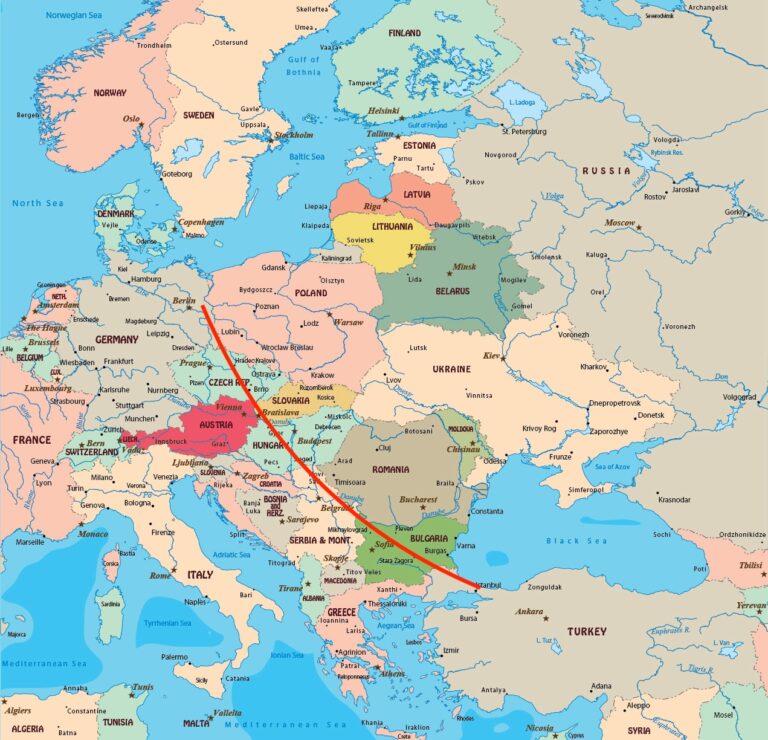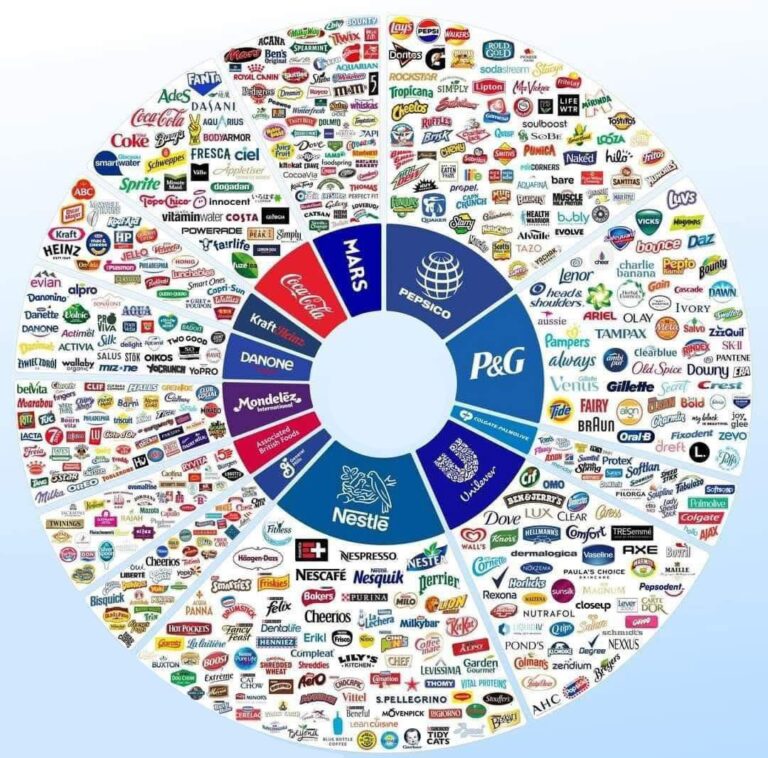By Andrea Tucci,
In June 2014, Egyptian President Abdel Fattah el-Sisi came to power. Since then, Egypt’s government has shifted from considering climate issues as a nonissue to organizing the 27th United Nations Climate Change Conference (COP27) in November 2022.
However, the reality is that the Egyptian government does not prioritize climate change, including its political, social, and economic dimensions, as an essential policy. Instead, it uses climate issues as a potential means to secure foreign funding.
Egypt’s most significant pledged reduction in greenhouse gas (GHG) emissions is from the oil and gas sector, targeting a 65 percent reduction by 2030. Yet, according to the International Energy Agency (IEA), between 2000 and 2021, the use of gas rose by over 300 percent, while oil use increased by 61 percent.
In February 2024, Egypt’s fiscal policy prioritized expansion and growth over the wellbeing of its people, including environmental and climate concerns.
Describing its economic growth model as “colonial,” Egypt allows foreign oil companies to operate due to the need for immediate foreign currency and the country’s tight economic situation caused by external debt.
Sisi’s administration continued the National Solid Waste Management Program, an Egyptian-German collaborative project aimed at enhancing and strengthening Egypt’s solid waste management. The program focuses on improving Egypt’s public service governance.
The government’s reports in 2019 unified data on waste volume in each of the country’s 27 governorates, as well as data on existing waste management equipment and their conditions.
This was a positive step, but aside from pilot projects in Assiut, Kafr Al Sheikh, and Qena, these masterplans were never implemented nationwide.
Since 2017, the government has discussed plastic pollution at a very surface level, despite it being estimated at 3.6 million tons annually. The government has been reluctant to enforce any form of regulation, only supporting some cleanup efforts, such as removing waste from the Nile, and creating a few alternatives. That’s it!
The government has not been willing to delve deeper into the plastic pollution issue and continues to follow outdated waste management practices across the country, including open-air landfills, improper garbage segregation, and burning.
Half of Egypt’s waste management sector is controlled by informal workers—laborers not officially hired by the government or a private, taxable entity.
These informal workers dominate waste management in large urban areas, such as Cairo’s Zabbaleen (Garbage City), where there is a lack of health and safety standards, especially affecting women and child laborers.
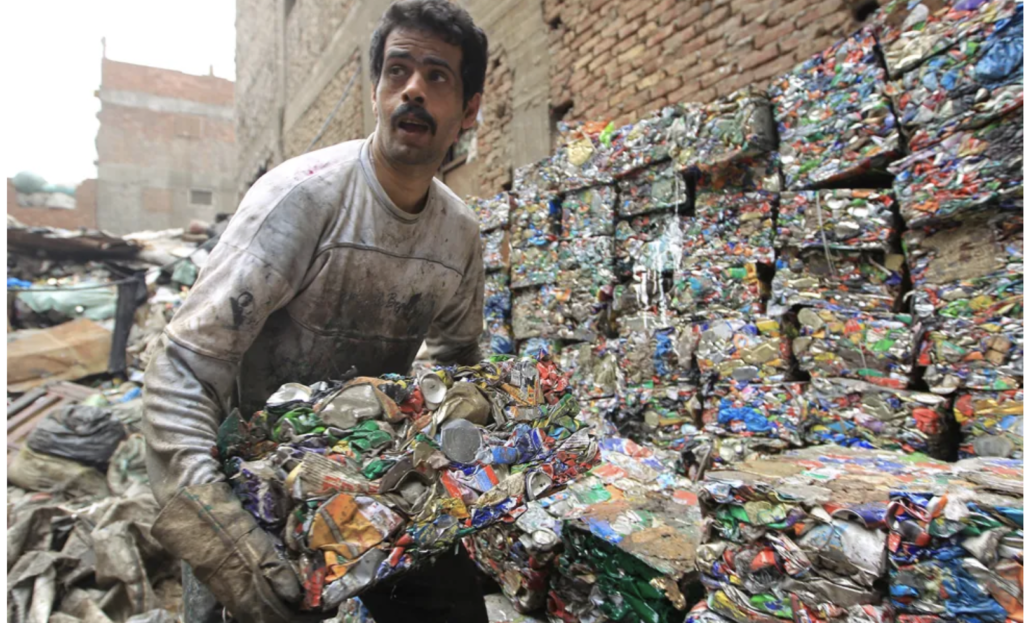
Informal workers provide a wide range of services, creating thousands of jobs for disadvantaged community members. As a result, Egypt’s informal waste management sector is considered irreplaceable.
This influence extends to other sectors, such as urban planning. However, instead of improving the quality of life in slum areas, the government is focusing on building the New Administrative Capital.
Egypt aims for a 7 percent reduction in GHGs by 2030 from the waste management sector. However, officials have not addressed how they plan to manage emissions in crowded areas or how to start creating low-emission zones.
The country’s ambition to become a regional gas hub and a major exporter of liquefied natural gas has been suspended, as a shortage of gas to supply its power plants has led to severe power cuts across Egypt.

Meanwhile, real estate expansion is causing significant environmental harm, according to urban researchers. This expansion is driven by investment purposes rather than addressing housing needs, resulting in a surplus of units and the creation of “ghost” cities.
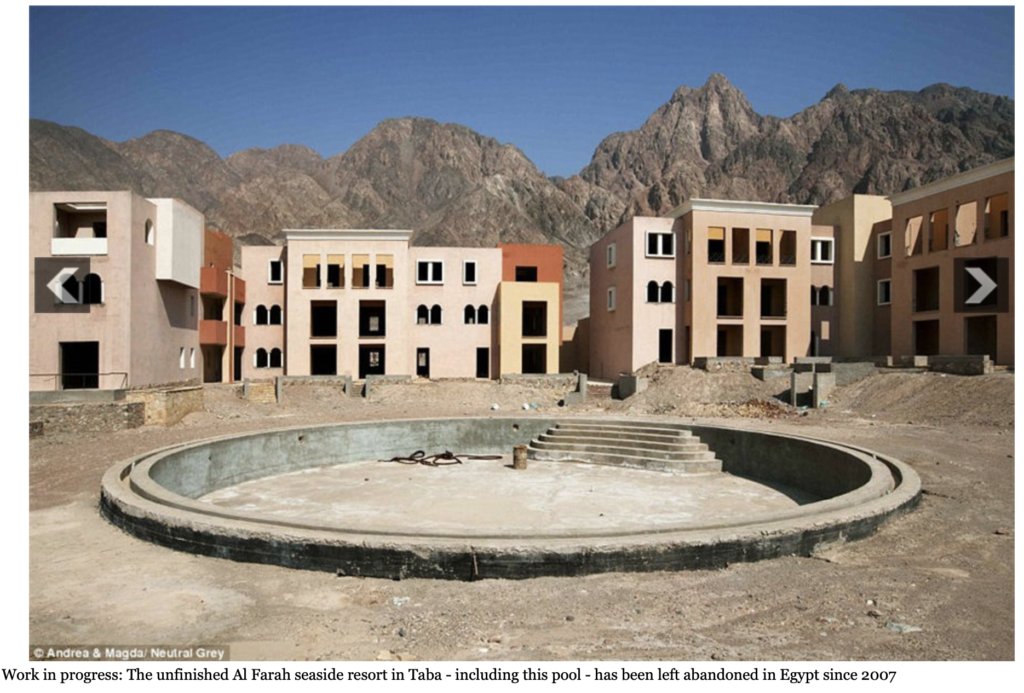
The Central Agency for Public Mobilization and Statistics reported 12.8 million uninhabited units in Egypt.
Such profit-driven urban expansion includes areas like the New Administrative Capital, New Alamein, New Sphinx, New 6th of October, and Al-Shurouk, among other “fourth-generation cities.”
The number of uninhabited units is enough to house a third of Egypt’s population, which is roughly equivalent to the number of Egypt’s poor.
The Egyptian government’s focus on real estate investment exacerbates environmental issues rather than addressing them.
The extraction, transportation, and manufacturing of construction materials such as cement, steel, and chemicals are highly taxing on natural resources and the environment. Construction and demolition processes consume large amounts of energy and water, generating emissions and waste.
In addition to profit-driven urban expansion, Sisi’s regime has faced criticism for continuously cutting down trees from the country’s already limited green spaces, an act publicly described as a “green massacre.” According to Global Forest Watch, Egypt saw a reduction of approximately 5,060,000 square meters of green spaces and tree cover between 2013 and 2023.
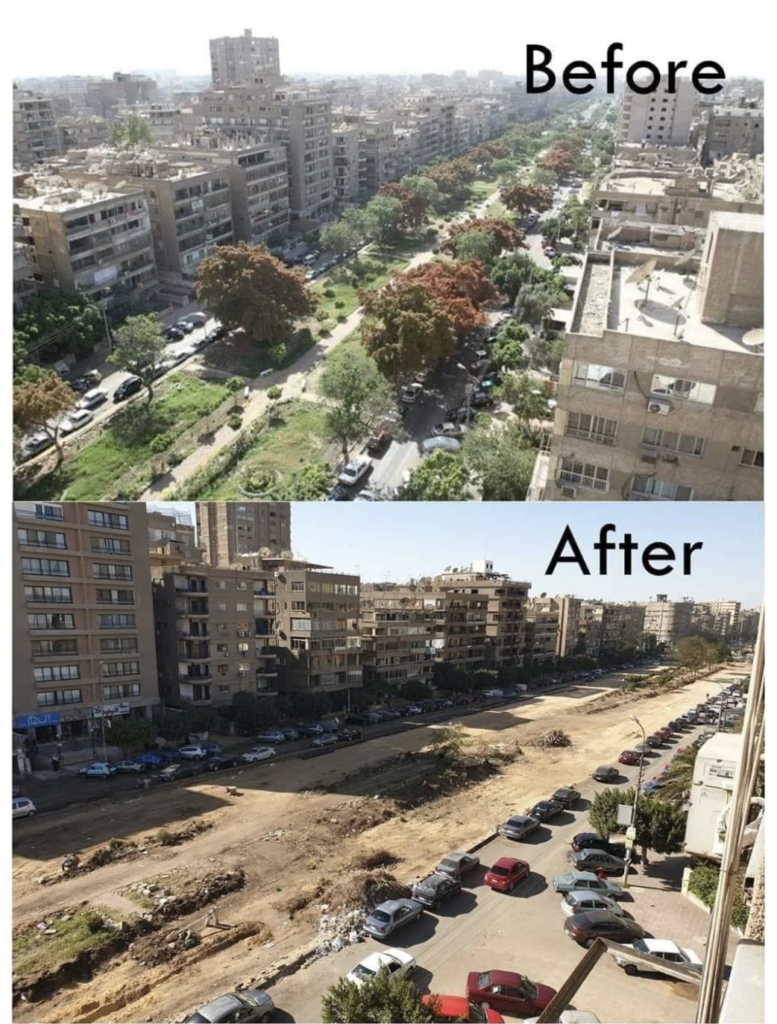
The per capita share of green spaces has decreased from 17 square meters to just 9 square meters per person. Warming rates in Egypt’s urban areas have significantly increased due to tree cutting and road expansion.
Air pollution was responsible for 90,000 premature deaths in Egypt in 2019, according to the World Health Organization (WHO).
Egypt does not yet have a clear emissions reduction target and has not implemented any basic rules for the long-term 2050 National Climate Change Strategy.
The governance of the country needs to take urgent and serious action.


